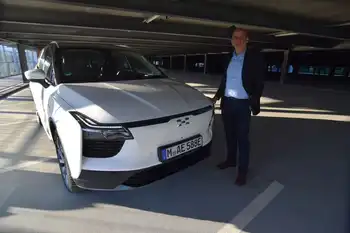Kentucky to expand advanced battery research
By Associated Press
Protective Relay Training - Basic
Our customized live online or in‑person group training can be delivered to your staff at your location.

- Live Online
- 12 hours Instructor-led
- Group Training Available
Beshear announced that the university has received $11.8 million in federal stimulus money from the National Institute of Standards and Technology for a nearly 36,000 square foot laboratory building at the Spindletop research site in Lexington.
The Kentucky-Argonne National Battery Manufacturing Research and Development Center, a joint venture involving researchers from the University of Kentucky and the University of Louisville, would use the laboratories for research.
The overall cost of the construction project would be $15.8 million, with the state kicking in $3 million in stimulus funding and the university $1 million.
University of Kentucky President Lee T. Todd Jr. said construction is expected to be completed in late 2011.
Beshear said the project is especially important for Kentucky, the nation's third leading producer of cars and light trucks, to try to position itself for the development and production of plug-in vehicles.
Kentucky researchers will focus particularly on improving lithium-ion batteries.
"Lithium-ion cells need a longer life span," Beshear said. "They need a longer charge life. They need to be smaller. They need to be cheaper. But, most of all, they need to be produced more efficiently."
The scientists will also be doing research in Lexington on capacitors for storing energy, biofuels productions, solar energy technologies, and clean-coal technology.
Beshear said producing clean-burning fuels from coal is especially important in Kentucky, where some 17,000 people work in the coal mining industry. He has been a leading proponent of coal production despite criticism from environmentalists.
"The renewable resources that we're working on and the coal that we have will both play a big party in Kentucky's future and this country's future," Beshear said.











